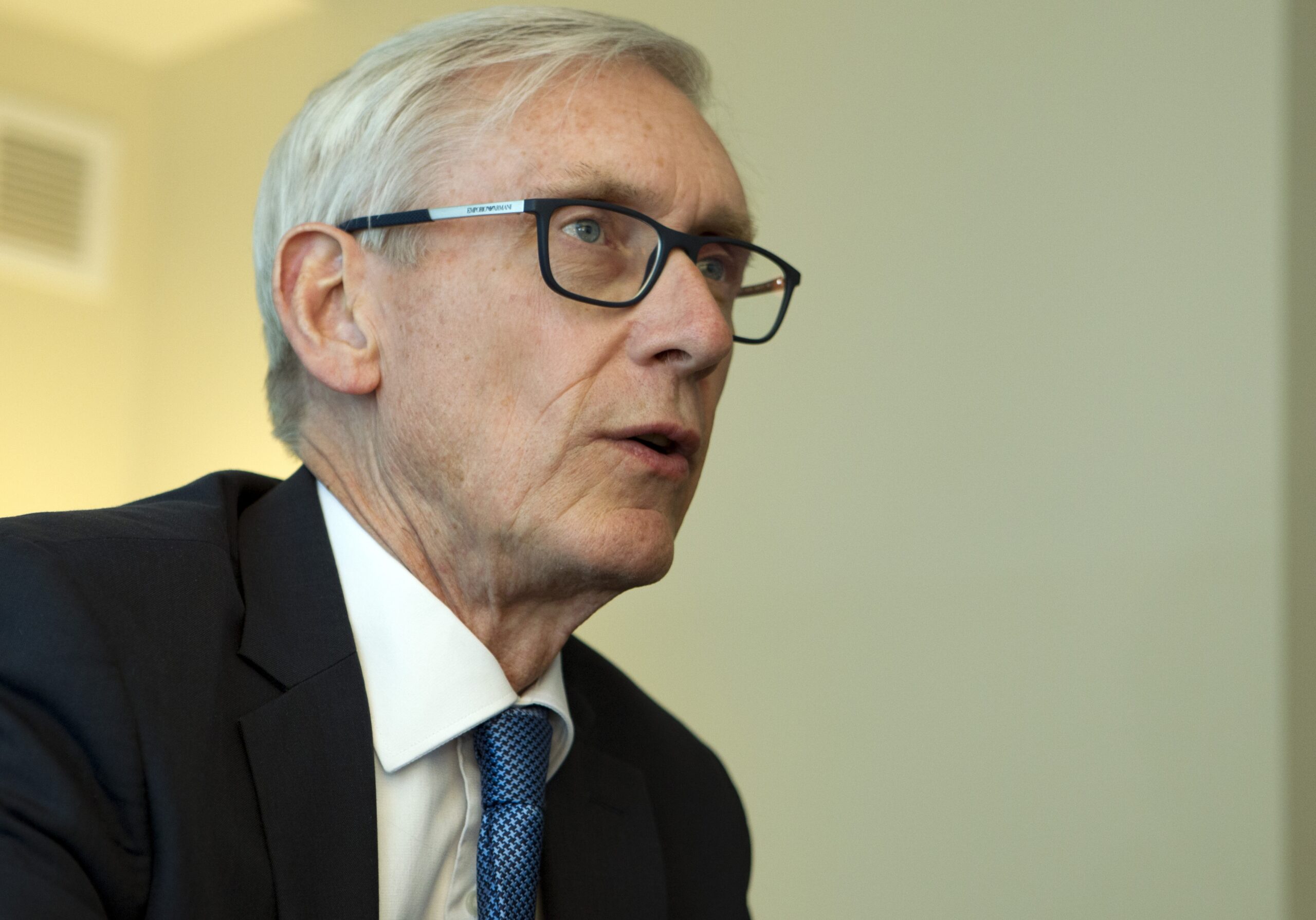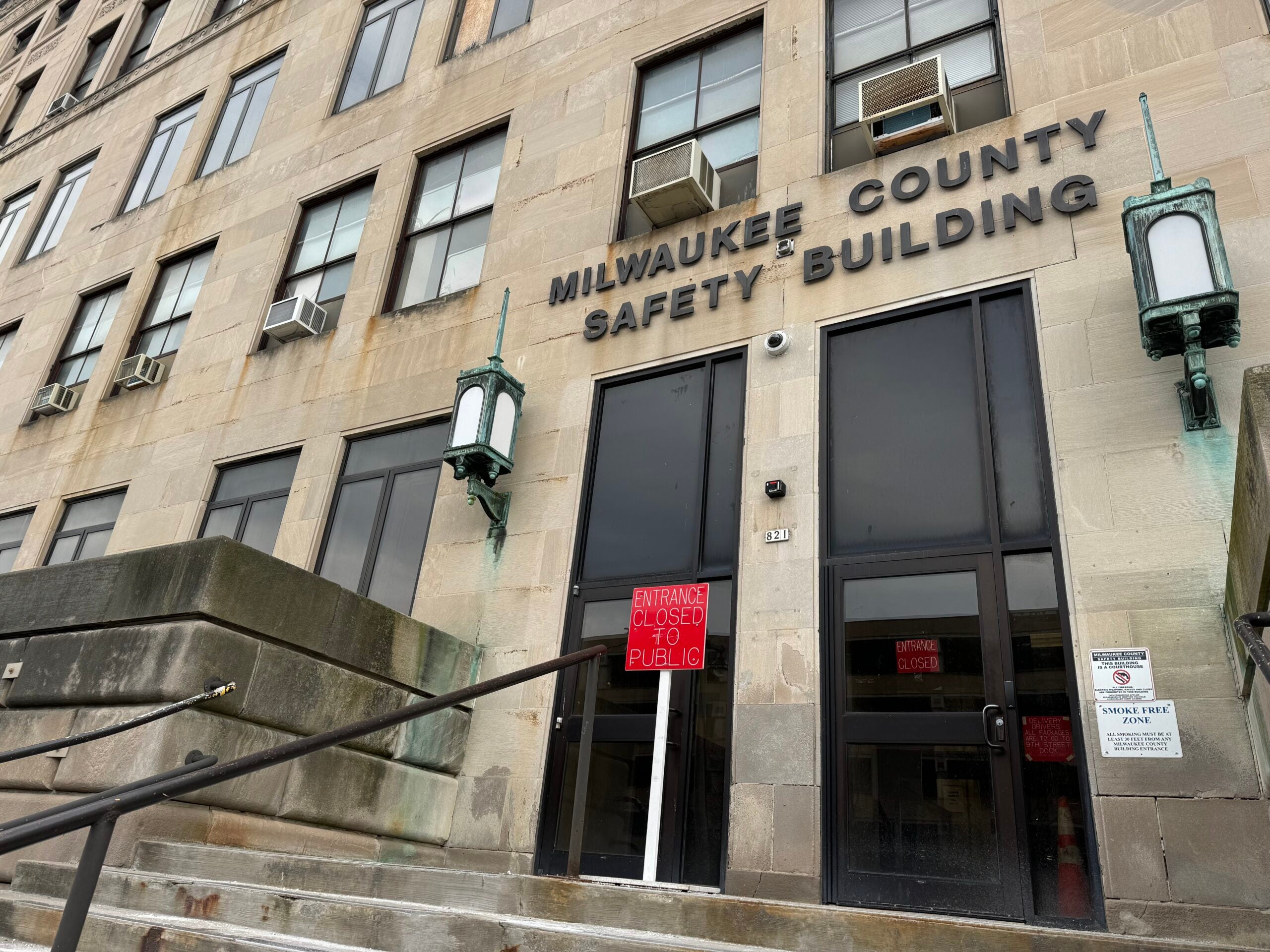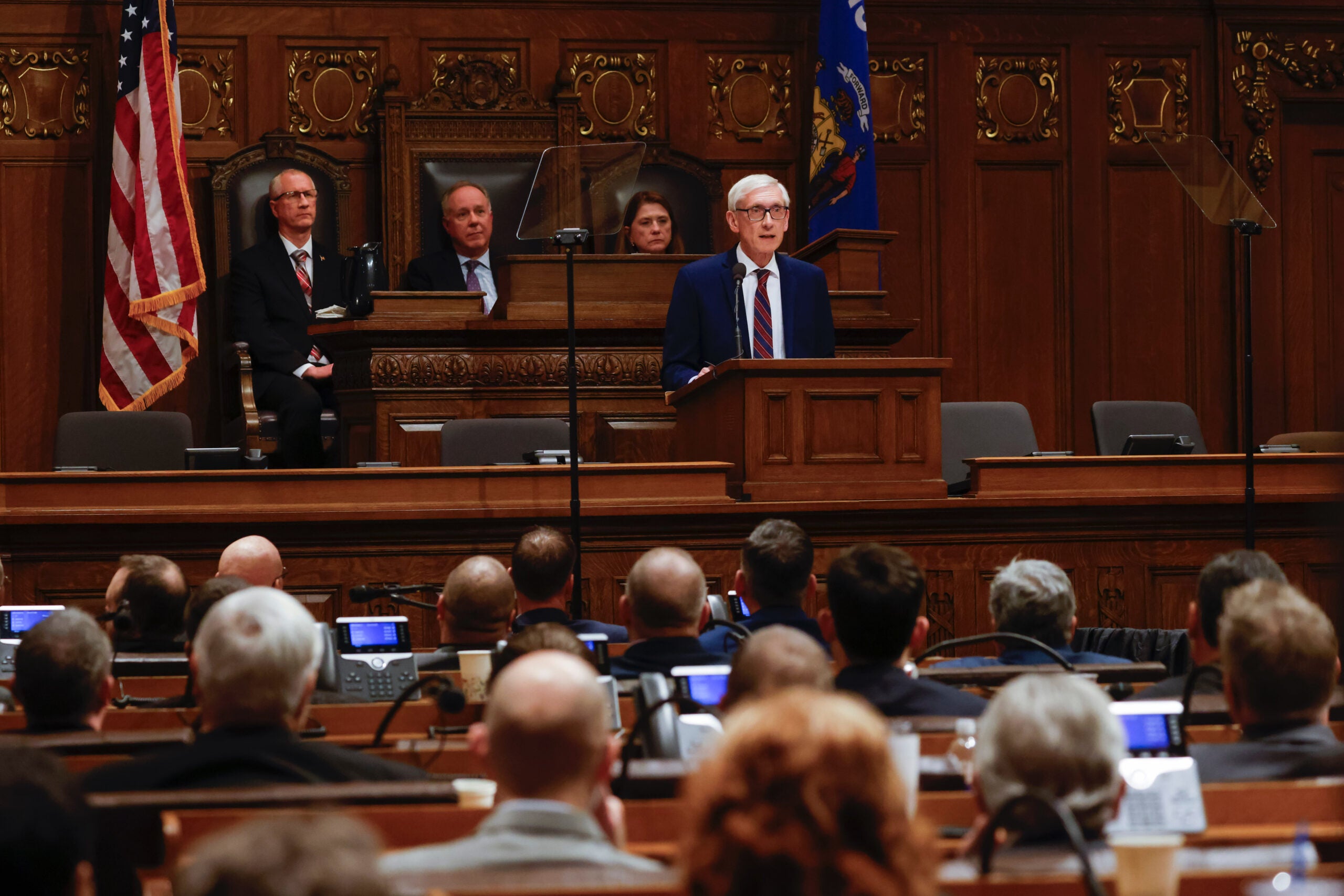Gov. Tony Evers said he anticipates a lot of “huffing and puffing” from state Republicans about his budget proposal — but in the end, he sees plenty of areas of agreement.
Evers spoke to WPR on Thursday afternoon as he kicked off a series of virtual budget listening sessions he says are intended to get people involved in the budget process.
Republicans have said they will throw out Evers’ budget and make their own, as they did during the first biennial budget of his administration in 2019. Some of his proposals, such as legalizing marijuana, appear to have little support among Republicans who control the Legislature. But Evers said other proposals have broader support. He named two policies — school funding and rural broadband — as central priorities that, if undermined, would cause him to consider vetoing the GOP budget.
Stay informed on the latest news
Sign up for WPR’s email newsletter.
Evers also discussed Wisconsin’s vaccination efforts and whether he’ll extend the statewide mask mandate that’s set to expire on April 5.
This interview has been edited for brevity and clarity.
WPR: In doing the budget listening sessions, are you hoping to get people involved in the process?
Gov. Tony Evers: In Madison, there’s a lot of huffing and puffing around the budget and on the different sides. At the end of the day, at least the experience from last budget is that we end up talking about the same things and addressing the same topics, whether it’s schools, roads, health care or whatever. And we reach some sort of conclusion.
We encourage people to become actively involved in the budget making process. It’s important for people to start engaging in the budget process, contacting their legislators and getting together with groups of neighbors to talk about the budget and what they think is important.
WPR: Are there things that are bottom-line issues for you that would cause you to consider vetoing the budget that comes out of the Legislature?
Evers: There are a whole bunch of things in the budget I know Republicans care about. They wanted two-thirds funding for the schools. I gave it to them. Now, look, at the end of the day, (the budget) may look much different, but I believe there are all sorts of areas where there will be agreement. Are there some things that are a bottom line? Yeah. I’d say if they decide to cut public schools, if they decide to not care about broadband, those might be things that I think would stick in my craw. But at the end of the day, I believe there are going to be many areas that we agree on.
It is a process, but I think it’ll be done by July 1 or sometime near there, unless they really decide to produce a Draconian budget that really messes with our schools or our health care system and so on. Then it could be much more difficult, and I may have to veto it.
WPR: Are you planning to extend the state’s mask mandate?
Evers: I will wait for the science on this. I saw that yesterday the number of COVID-19 cases went down again. It’s all about the direction the case numbers are moving in. When we started this month, we were essentially at the same level we were last September before the big blow-up in the state. It now looks like things are headed in the right direction. I’m allowing the science and the scientists that work with me in the Department of Health Services to help me make the determination about whether to extend the mask mandate. And it could be a last minute one.
WPR: Wisconsin has been one of the most efficient states for distributing vaccines, using the highest share of its allotments. In coming weeks and months, the public health challenge will change to working to persuade hesitant people. What is Wisconsin’s plan for that?
Evers: I am concerned about people who are hesitant to take the vaccine. In Wisconsin and in the nation, Black people and Brown people and Indigenous people tend to be more hesitant and frankly, have had the worse time with this virus. So we’ve had our work cut out there. The validators, the ones who are going to make the difference, are the local ones. I mean, I can say something, the Milwaukee Bucks can say something, the Green Bay Packers can say something. But the effective message is going to be from the local people who interact with these folks every single day.
For example, I have somebody in our extended family who is hesitant, and it’s taking lots of calls from my wife to that person to get them to the point where they will actually get a shot. There’s going to be a lot of that kind of persuasion. But especially at the local level, whether it’s priests, rabbis, other faith leaders, neighborhood leaders, they’re the ones who are going to have to help us. We’re reaching out to them right now.
And frankly, anybody who gets the shots, just think about your own families and extended relationships. Give them a call and say, “Hey, make sure you get your shot. It’s really easy, and I’m very happy I did it.” It’s going to take all hands on deck.
Editor’s note: This story has been updated. An earlier version misstated the expiration date of the state’s mask mandate. It expires April 5.
Wisconsin Public Radio, © Copyright 2025, Board of Regents of the University of Wisconsin System and Wisconsin Educational Communications Board.




